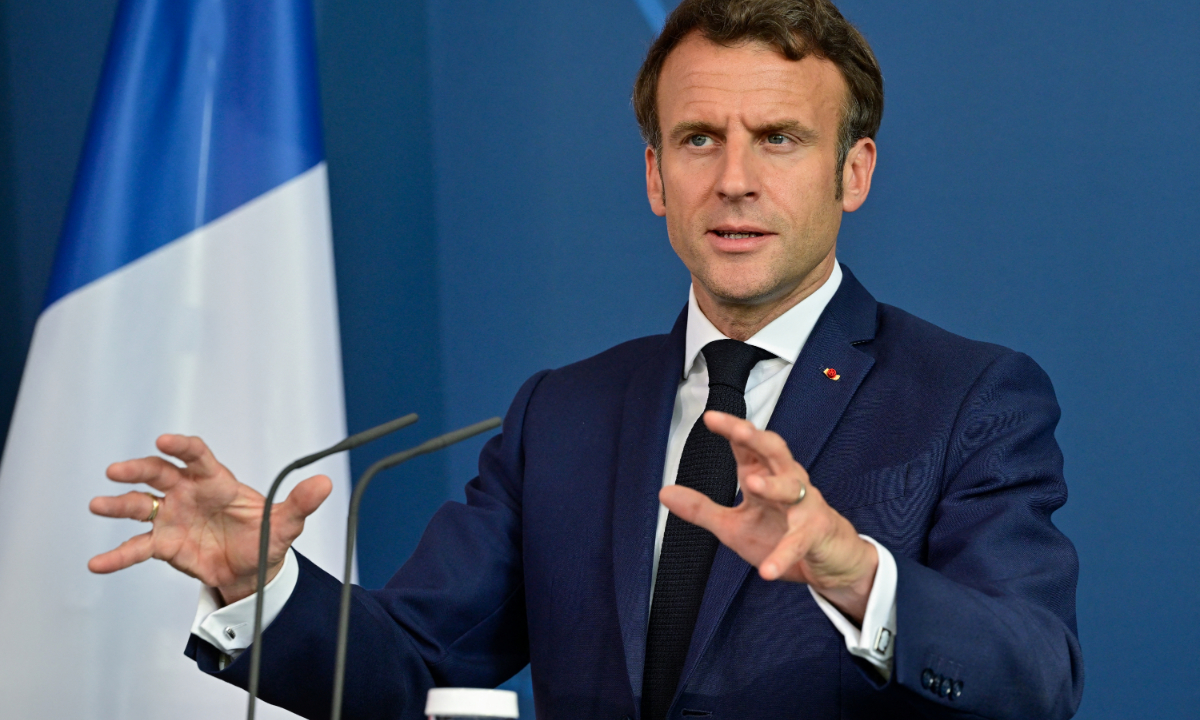Elections see left challenge to Macron
France to vote in parliamentary polls as economic problems loom

French President Emmanuel Macron
France began voting in the first round of parliamentary elections on Sunday, with a resurgent and newly unified left seeking to thwart President Emmanuel Macron's plans for reform.Elections for the 577 seats in the lower house National Assembly are a two-round process, with the shape of the new parliament becoming clear only after the second round on June 19.
The ballots provide a crucial coda to April's presidential election, when Macron won a second term and pledged a transformative new era after a first mandate dominated by protests, the coronavirus pandemic and the Russia-Ukraine crisis.
Polls opened at 8 am (0600 GMT) in mainland France, after voters in overseas territories cast ballots earlier in the weekend.
After a dismal performance in April, the French left has united in a coalition for what its leader Jean-Luc Melenchon dubs "the third round" of the presidential elections.
Opinion polls show the president's centrist alliance, Ensemble (Together), and Melenchon's NUPES coalition of hard left, Socialists, Communists and Greens neck-and-neck in the popular vote.
But France's constituency-based parliamentary system and the two-round election means that the seat breakdown will be another matter, and much will depend on turnout in the second round.
The abstention rate is predicted to be well over 50 percent in the first round, in what would be a new record for elections already marked by feeble participation in recent years.
If the president's alliance retains an overall majority, Macron will be able to carry on governing as before.
Falling short could prompt messy bill-by-bill deals with right-wing parties in parliament or an unwanted cabinet reshuffle.
A win by the left-wing alliance - seen as unlikely by analysts but not impossible - would be a disaster for Macron.
It would raise the specter of a clunky "cohabitation" - where the prime minister and president hail from different factions - which has paralyzed French politics in the past.
The most recent example was from 1997 to 2002 when right-wing president Jacques Chirac ruled in tandem with Socialist Lionel Jospin as premier.
Socialist president Francois Mitterrand twice had to cohabit with right-wingers: with Chirac in a famously fractious ruling duo and then with Edouard Balladur.
Melenchon, a former Marxist, has already made clear his ambition to become prime minister and stymie Macron's plan to raise the French retirement age, although the president would retain control over foreign policy.
Stepping into the fray on Thursday, Macron acknowledged the stakes were high, warning France against choosing "extremes" that would add "crisis to crisis."
"If the presidential election is crucial, the legislative election is decisive," he said in a statement.
AFP
